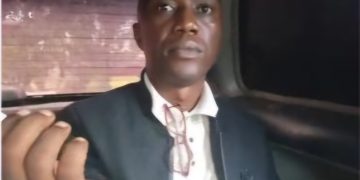After nearly a decade of mystery and stalled investigations, the High Court’s International Crimes Division on Monday delivered long-awaited justice in the brutal assassination of Senior Assistant Director of Public Prosecutions, Joan Namazzi Kagezi.
Daniel Kisekka, a former soldier with the Uganda People’s Defence Forces (UPDF), was handed a 35-year prison sentence after pleading guilty to Kagezi’s murder in a plea bargain deal with the Office of the Director of Public Prosecutions (ODPP).
The plea saw terrorism-related charges against him dropped, and his sentence reduced to 34 years after accounting for one year already spent on remand.
Joan Kagezi was gunned down on the evening of March 30, 2015, in the Kampala suburb of Kiwatule as she returned home with her children. Her assassination sent shockwaves through Uganda and the international legal community.
At the time of her death, she was at the forefront of prosecuting high-profile terrorism cases most notably, the trial of suspects in the 2010 Al-Shabaab bombings in Kampala that killed more than 70 people.
Court documents reveal that Kisekka, along with three co-accused John Kibuuka alias Musa, John Masajjage alias Mubiru Brian, and Nasur Abdallah Mugonole were contracted to eliminate Kagezi.
In a chilling confession, Kisekka admitted that the group was paid $20,000 by an unnamed high-profile individual who reportedly objected to Kagezi’s tough stance on terrorism cases, particularly those involving Muslim suspects.
Investigators believe the plot bore the fingerprints of the Allied Democratic Forces (ADF), a rebel group long accused of orchestrating acts of terror in Uganda and the wider Great Lakes region.
Though the identity of the mastermind remains unknown, security agencies insist that the conspiracy had deep and deliberate roots.
Kisekka, who deserted a UPDF unit based in Gulu, had stolen two AK-47 rifles before linking up with the criminal gang.
Prior to Kagezi’s murder, the group was involved in a string of armed robberies across the country, further underlining their descent from soldiers to outlaws.
The turning point in the case came in 2023, when President Yoweri Museveni publicly criticized the stagnation in the investigation during a national security address.
His directive for renewed efforts reignited the case, eventually leading to Kisekka’s arrest and prosecution.
Due to national security concerns, journalists were barred from capturing Kisekka’s image during the sentencing hearing. His co-accused, who have not entered plea deals, are set to stand full trial on charges of murder and terrorism.





















